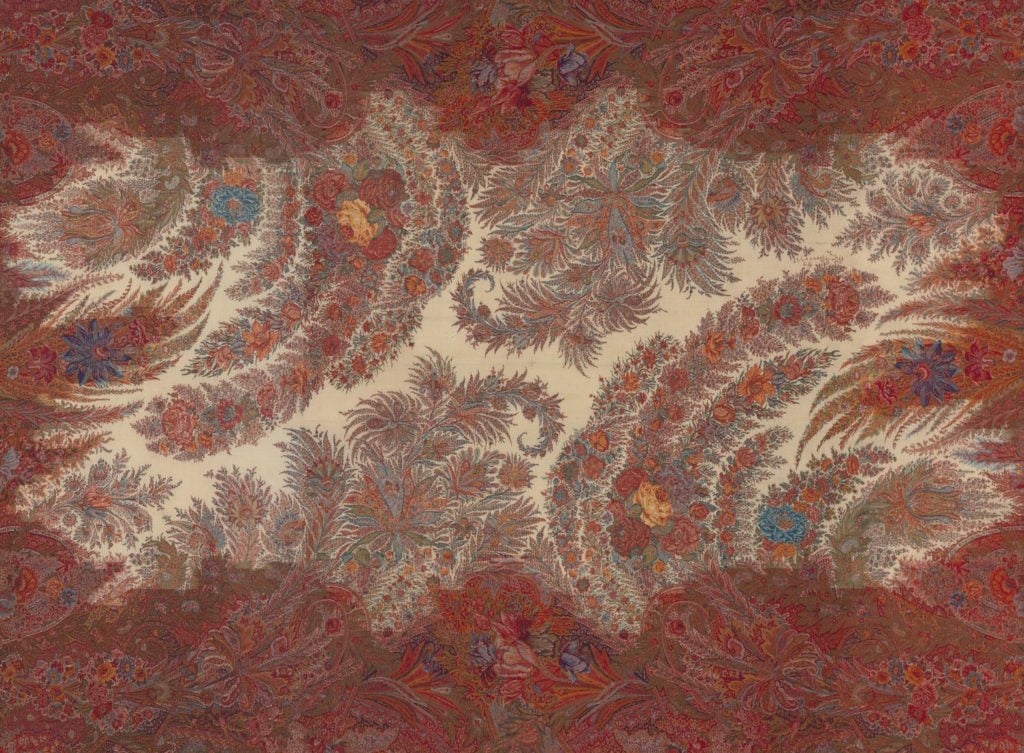Opinion
A Paisley Shawl at the Met Is So Pretty, It’s Beyond Beautiful
THE DAILY PIC: A 19th-century wrap could be the Mona Lisa of cold-weather ware.

THE DAILY PIC: A 19th-century wrap could be the Mona Lisa of cold-weather ware.

Blake Gopnik

THE DAILY PIC (#1631): As far as I’m concerned, “beauty” is the most useless concept brought to bear on art: It’s hopelessly vague and subject to infinite whims. Prettiness, on the other hand, is a concept I’ll go to bat for.
This goat-fleece-and-silk paisley shawl, machine-woven in around 1850 in Paris, probably by the firm Deneirouse and Boisglavy, qualifies as an extreme example. (I’m showing a small piece of it; click here to study the whole shawl in fine detail.)
I came across it tucked away in a far corner of the Metropolitan Museum in New York, off by the elevators to the roof, badly lit and obscured behind thick Plexiglas. And still I could tell that it was one of those miraculously pretty objects that humankind can sometimes come up with.
One man’s beauty may be another’s banality, but on the pretty I think we can mostly agree. (Proof: After writing today’s Pic, I was pleased to discover that an expert – the Met’s own textile curator Melinda Watt – had already picked out this shawl for special discussion online.)
And one final thought that leaves aesthetics per se behind (always the best thing to do, anyway, when talking art). This machine-woven shawl set out to show that the new industries of Europe could rival the skilled hands of South Asia, and it achieved that goal. But I wonder if the thirst for paisley patterns at the time of the Industrial Revolution also reflected a deep psychological parallel that was felt between the wheels-within-wheels of that ancient pattern and the gears-within-gears of the new machines that were built to imitate and outdo it.
For a full survey of past Daily Pics visit blakegopnik.com/archive.